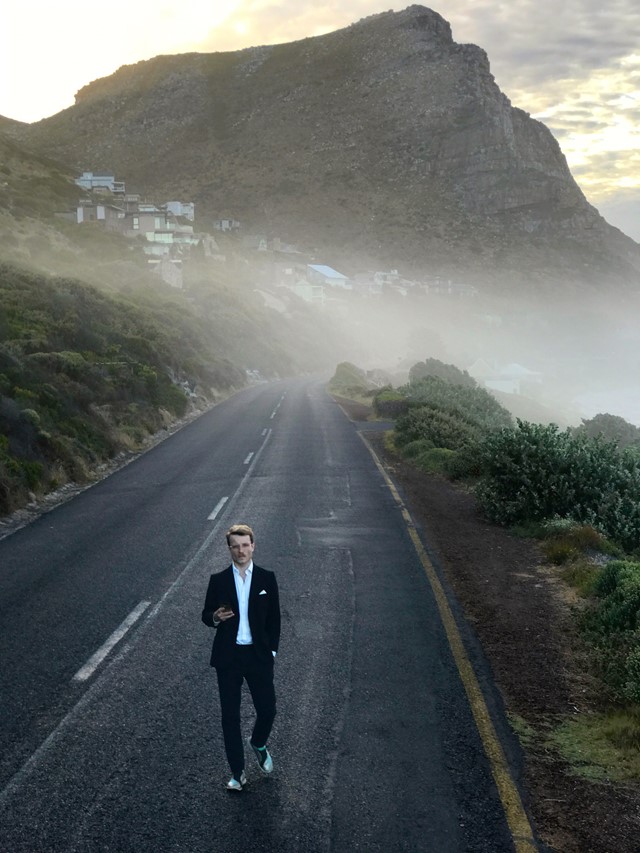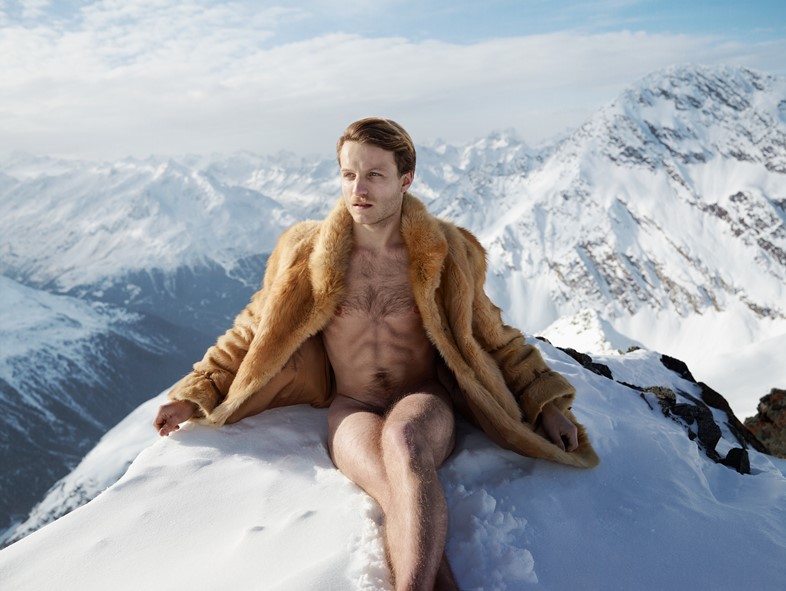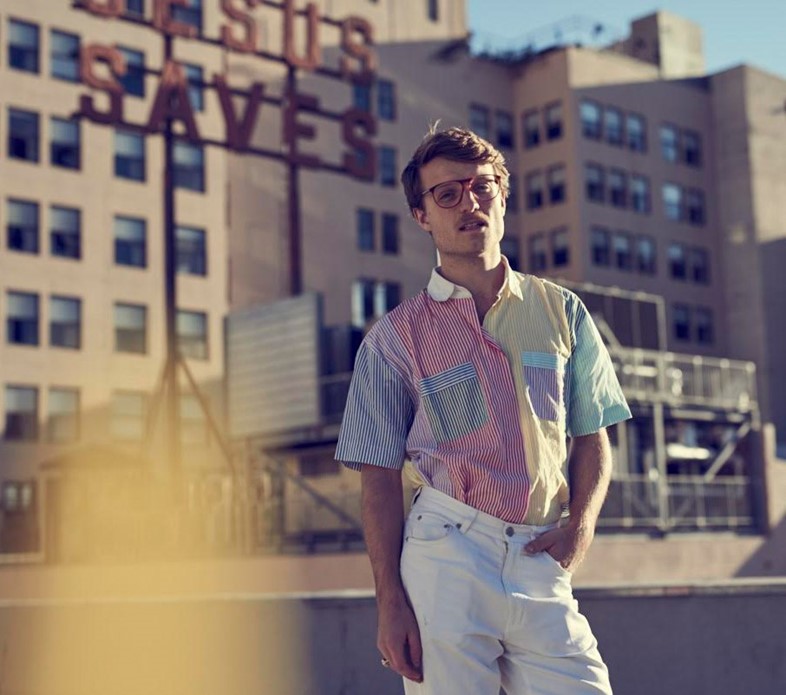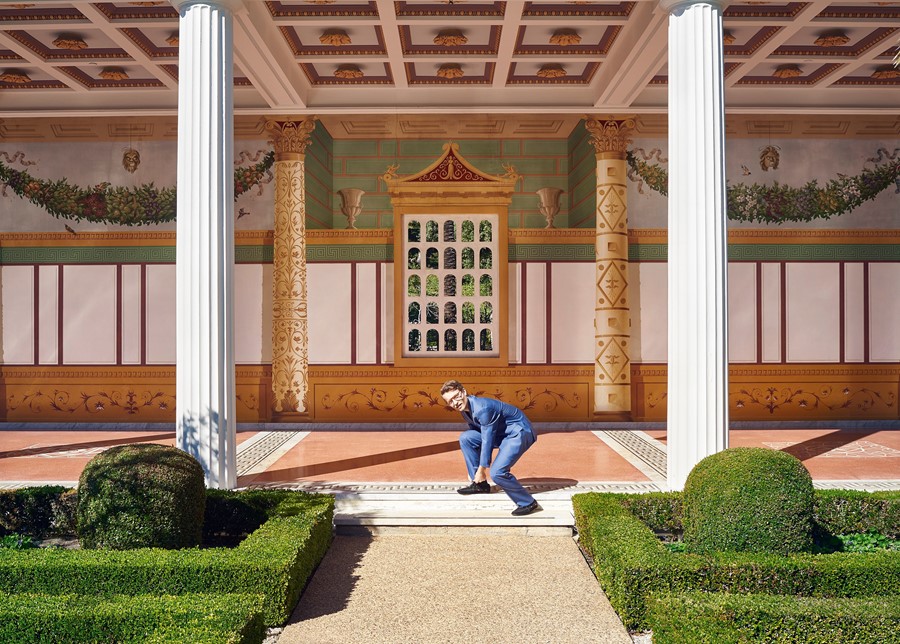Where does an artificial life performed through social media intersect with a real one? German artist Andy Kassier investigates
In 2013, a 27-year old German artist named Andy Kassier began a ‘fake life’ social media performance – one not unlike Amalia Ulman’s Excellences & Perfections, the most talked-about artwork of 2014. Berlin-based Kassier is still relatively unknown, but his work, a critical and humorous view of modern masculinity, involves staging photographs that reference 80s advertising and the language of start-up culture. Kassier performs the archetypal role of the alpha male stereotype, posing with fast cars, sharp suits, yachts, and sunglasses, at luxury locations like the Getty Villa in L.A., a mountain in Austria or on a street in Cape Town. It’s a neat insight into the self-portrait as a means of performing masculinity, in an arena often dominated by investigations into female identity.

The resulting images are funny, but beyond the visual gags they comprise a deeper critique of the capitalist system which perpetuates this view of masculinity, and the way these roles play out through selfies online. Simply put, we’re not as used to seeing men depict themselves in this way, in art or online in general, as we are women, and a renewed focus can only make for a positive change. AnOther caught up with Kassier in person during Art Cologne last week, where he was exhibiting some of his photographs and sculptures, to find out about his ‘Instagram life’.

When Kassier first started posting simple self-portraits shot against a white background – images he has since used on his own currency, which he’s duly printed – it was as part of a fairly straightforward exercise. “The idea for me from the beginning was to think about male roles,” he explains. This soon evolved into an ongoing performance. “It’s more focused on things I’m interested in, which are all put over the idea of taking selfies – and selfies as a statement of power, lifestyle, happiness.”
One of Kassier’s biggest influences has been the internet, he says. “I grew up very much with the internet – I started playing computer games like Counter Strike really young – and the interactions with other people online totally affected me. It’s only in the last few years I started to make friends with people in real life; for ten years I was really introverted.”

Kassier draws inspiration from corporate aesthetics and city boys’ Instragram accounts. “I like start-up and business books. There’s a CEO from New York, Gary Vaynerchuk – he’s really crazy, so pumped,” he says. “I’m influenced by the aesthetics of advertising, especially the 1980s idea of success, where there was no idea of the negative side of success or money.” His photographs do contain a trenchant critique of capitalism, and the way in particular men inhabit it, from his point of view as a man. “I think it’s a masculine view because I’m a man, so I can totally identify with that: I just have to put a suit on and I’m in the role of a city guy.” His stance on such roles is defiantly disparaging. “I’m totally critical – I think it’s absolutely unnecessary to want things for yourself and not share with others. All of this wealth, fame, it’s all about excluding someone.” He sees the way men often use selfies is to ‘fake it til you make it’, he says – a way to bluff your way into the world of the rich. “The question for me is always, do we need to own something? If I take a picture of a Porsche I own it for that moment.”

Since it’s not always clear – much like Ulman’s account – who the ‘real’ Andy Kassier is, responses to his artworks are often surprising. “Motivational guys really respond really well to my selfies and comment on them – there are all these business and start-up guys on Instagram, who post pictures and inspirational quotes, like ‘Monday morning’s the best’.” The way men depict themselves in selfies, and the responses to those pictures, also reflects wider gender divides in society. “There’s a point where I think society always asks women to reflect on how they look, which is totally different to men – the social expectations are totally different. I have the feeling that for a man if they take selfies it’s rather sexual, or to show something around them – cars, friends, things that signify power – but it’s never about beauty, or reflecting yourself or your own body, it’s more about showing how cool you are,” Kassier suggests. “I think men are totally allowed to show everything and no-one will care – except dick pics.” Would he ever post a dick pic? “No, no, NO!”
